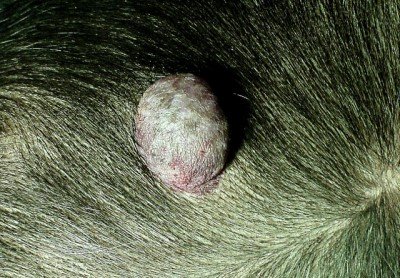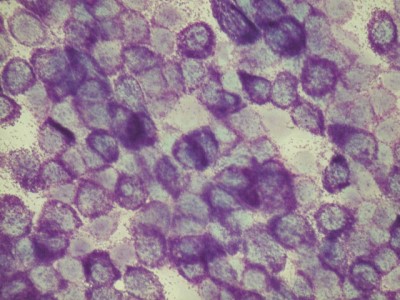This is a well-differentiated mast cell tumor (MCT), which should be treated with an H1 histamine receptor anatagonist (a.k.a. blocker – e.g., diphenhydramine) and a corticosteroid (e.g., prednisone) prior to surgery.
Treat pre-surgically to shrink the tumor, minimize degranulation, and block the effects of histamine and other vasoactive mediators. Risk of histamine-induced gastric ulceration can be decreased with proton pump inhibitors (e.g., omeprazole) +/- H2 histamine blockers (e.g., famotidine).
Dx before surgical excision: CBC, serum chemistry panel, urinalysis, and regional lymph node aspiration (regardless of node size). CBC changes can include eosinophilia, basophilia, and regenerative or nonregenerative anemia. If there is lymph node metastasis, tumor recurrence, or peritumoral edema/bruising also consider abdominal ultrasound +/- hepatic and splenic aspirates and bone marrow cytology.
Complete excision requires at least two-cm lateral margins and one fascial plane.
Mast cell tumors can occur in any age or breed. Predisposed breeds include Boston terrier, pug, Shar-pei, Staffordshire bull terrier, golden and Labrador retrievers, and Jack Russell terriers.
Images courtesy of Dr. Patrick Hensel.


